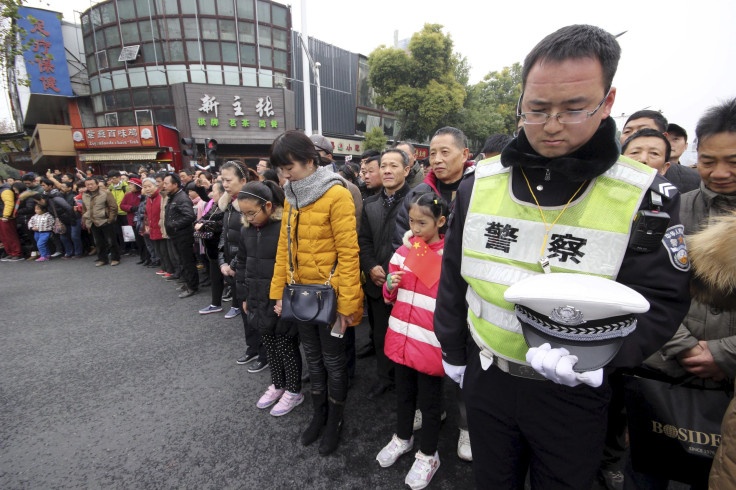Nanjing Massacre 80th Anniversary: Facts About China's National Day Of Remembrance

President Xi Jinping kept a low profile Wednesday as China celebrated the 80th anniversary of the Nanjing Massacre. Sometimes referred to as the Rape of Nanjing, public remarks on the anniversary this year were left to another senior official.
China persistently reminds its citizens of the 1937 massacre by Japanese troops, on its then capital, Nanjing, during the Second Sino-Japanese War. There has been much contention between the two historical rivals on the exact toll of the massacre with China maintaining the number to be 300,000 people, while according to a Reuters report some conservative Japanese politicians and scholars deny a massacre took place at all.
According to a Channel News Asia report, Japan’s official position on the numbers remains "the killing of a large number of non-combatants, looting and other acts occurred," but says it is "difficult" to determine precise figures. This is seen by some in China as Japan’s unwillingness to fully atone for its wartime aggression, the report said. A post-war Allied tribunal put the death toll at 142,000.
The 80th anniversary of this enduring source of bad blood was marked by China calling to work with Japan for peace. A long-running territorial dispute over islets in the East China Sea, coupled with Chinese suspicion about efforts by Japanese Prime Minister Shinzo Abe to amend Japan’s pacifist constitution, have plagued ties between the world’s second- and third-largest economies.
In 2014, the anniversary was declared a National Day of Remembrance, thereby raising its profile. The first National Day of Remembrance was marked with a speech by Xi in Nanjing, where the president noted the slaughter of "300,000 deceased victims" could not be denied.
Liang Yunxiang, an international relations expert at Peking University, believes keeping such memories are valuable as leverage with regards to modern-day disputes such as maritime territorial contentions.
"There are current conflicts between the two countries, so historical issues are re-emerging. All history is contemporary," Liang said. "Japan thinks these historical issues should have ended but China keeps hammering them as it becomes more powerful."
A senior official, Yu Zhengsheng, who heads a largely ceremonial advisory body to China’s parliament, albeit a high profile one, said: "China and Japan must act on the basis of both their people’s basic interests, correctly grasp the broad direction of peaceful and friendly cooperation, take history as a mirror, face the future and pass on friendship down the generations."
Yu stressed Japan and China were neighbours with deep historic ties, and that China will seek to deepen its relations with all its neighbours, Japan included, on the basis of amity, sincerity and friendship.
The speech at a memorial in the eastern city of Nanjing, China, was broadcast live on state television as a solemn Xi stood in the audience wearing a white flower on his lapel, as a symbol of mourning, and did not speak.
Once finished, doves symbolizing peace flew overhead.
© Copyright IBTimes 2024. All rights reserved.












